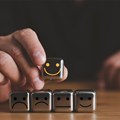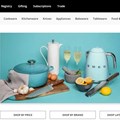Consumers settle for good enough while brands create the leaky bucket syndrome

A uniquely South African phenomenon, this is the key finding of the fifth edition of the South African Customer Experience Report which has just been released.
The Report says that now that the Covid hangover is almost over, consumers’ behaviour has changed, and this presents both a threat and an opportunity for brands.
Very little works and has become the new normal
“Survey insights indicate that this mirrors the national psyche and that the reasons for this shift in consumer sentiment could be related to the general malaise that we experience as South Africans every day.
“Very little works with load- and water-shedding becoming the new normal, and coupled with a cycle of high interest rates, inflation, fuel and food prices, few can disagree that the State is in a poor state.
“This has led to a nation-wide apathy and has created a consumer who is accepting that, among the brands they shop from, “good enough is good enough,” says the Report.
“We have let our standards slide so far that we are willing to let brands get away with substandard service, quality and reliability,” says Charlie Stewart, Rogerwilco’s CEO and co-author of the Report together with ovatoyou’s Amanda Reekie and CX consultant, Julia Ahlfeldt.
The leaky bucket
While consumers have lowered their expectations, there is a lot to be said for the state of mind of brands too. Likely to be feeling the economic pinch, many are chasing acquisition over retention, creating a “leaky bucket” syndrome.
Onboarding a new customer appears easier than keeping an existing one, leading to a cycle of seducing the new while losing the current.
“It is perplexing that brands continue to prioritise new business when there are relatively simple fixes to improve retention,” says Ahlfeld.
“If the profit opportunity is so large among existing customers, why then are businesses chasing new revenue over locking in customers for life?” posits Ahlfeldt.
It seems that this is truly the case, with only 14% of business respondents citing retention as a more important focus for their organisation than acquisition.
Since acquisition trumps retention in terms of business focus, it is little wonder then that existing customers are receiving a poor customer experience. This could be a case of “the devil you know” but also because there are few alternatives.
Where is the next Yuppiechef?
Stewart mentions an iconic South African brand that has built massive rapport with its customers, YuppieChef.
“Launched in 2006, its hand-written notes propelled it into consumer nirvana, and it still gets kudos for this simple way of creating the human touch.
“Seventeen years later however, where is the next Yuppiechef? Where are those exceptional brands that delight us and put us – the customer – at the centre of their business?
"If Jeff Bezos can do it with Amazon, and create a global mega-brand, then why can’t our local brands follow suit?” says Stewart.
Hold brands to account
Stewart says that we need to hold more brands to account – and there is a very powerful way with which to do that: reviews and recommendations.
Now among the most common actions performed online 67% of consumers either post reviews and recommendations or read those of others, which collectively could be as high as R40,2bn for this year alone.
“Travellers for instance can view a property’s popularity on Booking.com before confirming their stay or refer to social media to get a sense of what others’ experiences were.
“This is empowering as it gives consumers the tools with which to call brands out if they are not living up to their promises,” says Reekie.
This trend applies to most sectors. From groceries and non-grocery retail, to restaurants and fast food, domestic travel, communication such as cellular and fibre connectivity and automotive, collectively these categories account for a significant R2tn in on- and offline sales, representing 43% of GDP.
The consumer trusts reviews
By extrapolating consumers’ typical online activity during the purchase journey we found that online product research (reviews, recommendations, browsing) impacts R516bn of purchase decisions within the total R2tn retail pie, highlighting the strength of actively driving positive reviews, something that 64% of our respondents said they did by posting on social media.
Conversely, if customers have a negative experience 59% said they tell their friends and family and are more likely to air their grievances in public with 50% confirming they’d post on social media or a review site.
This is up from 43% in 2022. This trend must not be overlooked by brands as the more consumers trust reviews, the more impact these will have on securing or losing sales.
A threat and an opportunity for brands
Reekie says that customers want to be treated as human beings. “They want to have good experiences throughout the on- and offline purchasing journey and, if they are not happy, will tell others about it.”
While consumers were extremely forgiving of brands during the Covid years, Reekie explains that they no longer are. "Instead they have become apathetic and complacent, accepting that good enough is good enough, instead of great.”
This, says Reekie, presents both a threat and an opportunity for brands. “It’s a threat if they continue as is, offering poor experiences which could cause customers to leave, while it’s also a significant opportunity for the brand that disrupts their market by making relatively simple changes to how they engage their customers.
“Brands are sitting on a golden opportunity to up their game and offer great not just good CX.”
































